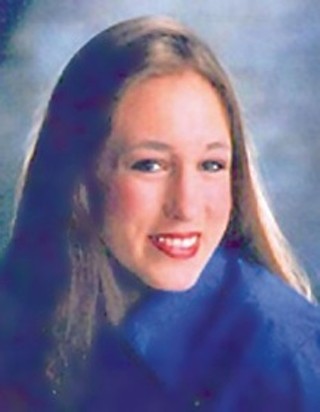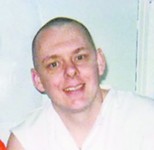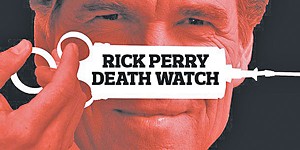The Science of Death
State says science proves Swearingen guilt
By Jordan Smith, 9:35AM, Wed. Feb. 29, 2012

The foundation of good science is that its results are infinitely repeatable, says Montgomery County Assistant D.A. Warren Diepraam – you can test a theory and get the same result over and over, and that's exactly what experts for the state have done in the case of Larry Swearingen, on death row for the kidnap-murder in 1998 of 19-year-old Melissa Trotter.
Regardless of which experts the state has asked to look at the case, each of them – pathologists and entomologists alike – have said the same thing: Trotter's body, found in the Sam Houston National Forest on Jan. 2, 1999, had decomposed in a manner consistent with a woman dead some three weeks. The science of death and decomposition is central to a hearing happening this week in district court in Montgomery County, where Swearingen is seeking to prove he is innocent of Trotter's murder. According to the defense, the state of Trotter's body when found in the forest is far more consistent with that of a woman dead at most a week at the time she was discovered – and if that's the case, Swearingen could not have been her killer.
Trotter disappeared on Dec. 8, 1998, during finals week at Montgomery College, where Trotter was a student; she attended a class review session, did some work on a college computer, had an order of french fries, and then disappeared. Three days later, Swearingen was arrested on outstanding warrants; he's been behind bars ever since. Although the area of the forest where Trotter's body was eventually found was searched several times, she wasn't discovered until some three weeks later. Swearingen was subsequently charged, convicted and sentenced to die for her murder. But the defense argues that histological evidence not provided to the defense until 2009 reveals tissue that is nowhere near as decomposed as would be expected if she had been left outside in the forest for nearly a month. According to a host of forensic pathologists – including several of the state's more prominent doctors – the evidence is clear: Trotter had been dead not more than a week or so before being found, which is what Swearingen's defense is arguing at this week's evidentiary hearing, which Swearingen's attorney hopes will ultimately help to clear his client's name.
Diepraam doesn't believe that will happen. He says the defense experts have been all over the map with their estimates of when Trotter died and that makes their conclusions suspect. Conversely, state experts are firm on their date-of-death – including a bug expert from Sam Houston State Unversity who not only has worked at the school's body farm, but also who is the only expert in the case to have done research in the section of the forest where Trotter's body was discovered. (In last week's paper we wrote briefly about this expert, assistant professor Sibyl Bucheli; Diepraam says we incorrectly characterized her as only an expert in moths and butterflies – her main area of expertise – and missed experience that makes her a formidable expert in this case. The curriculum vitae originally reviewed by the Chronicle appears to be an older version of a document Diepraam provided to us this week.)
Moreover, Diepraam argues that the "science" of death and decomposition based on tissue samples that Swearingen's defense is using to suggest Swearingen was wrongly convicted is relatively untested and not a proven way to determine time of death. Why then would a handful of forensic pathologists – including at least two Texas medical examiners, Dr. Lloyd White from Tarrant County and Dr. Stephen Pustilnik from Galveston County, among the relatively small group of doctors across the state upon whom state prosecutors and police rely to make decisions about suspicious deaths – put their credibility on the line, if the science weren't solid? "That's the magic question," Diepraam says. "Dr. Pustilnik and Dr. White's credibility on the issue is under attack in this case" – and, he says, he believes will be used against them in future court proceedings. Diepraam says he has no doubt at all that Swearingen is indeed guilty of murdering Trotter and believes the hearing, which continues into next week, will prove that once and for all. The evidence "overwhelmingly and compellingly" makes the case, he says.
Read more on the Swearingen case here.
Got something to say on the subject? Send a letter to the editor.
A note to readers: Bold and uncensored, The Austin Chronicle has been Austin’s independent news source for over 40 years, expressing the community’s political and environmental concerns and supporting its active cultural scene. Now more than ever, we need your support to continue supplying Austin with independent, free press. If real news is important to you, please consider making a donation of $5, $10 or whatever you can afford, to help keep our journalism on stands.
Jordan Smith, Oct. 4, 2013
Jordan Smith, Aug. 9, 2013
May 22, 2014
Larry Swearingen, Melissa Trotter, Warren Diepraam, Sam Houston National Forest, Dr. Lloyd White, Dr. Stephen Pustilnik, death penalty, science, junk science, wrongful conviction, courts, cops










